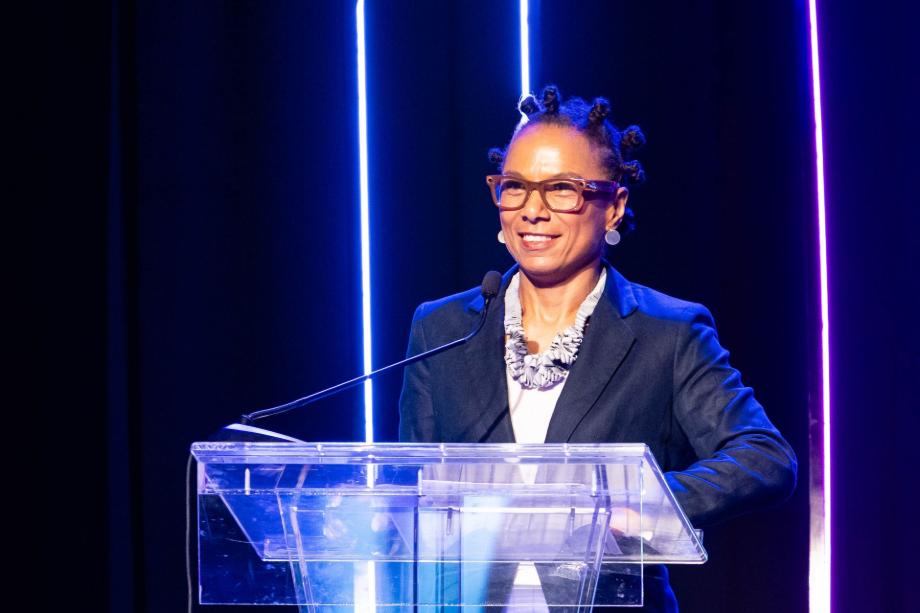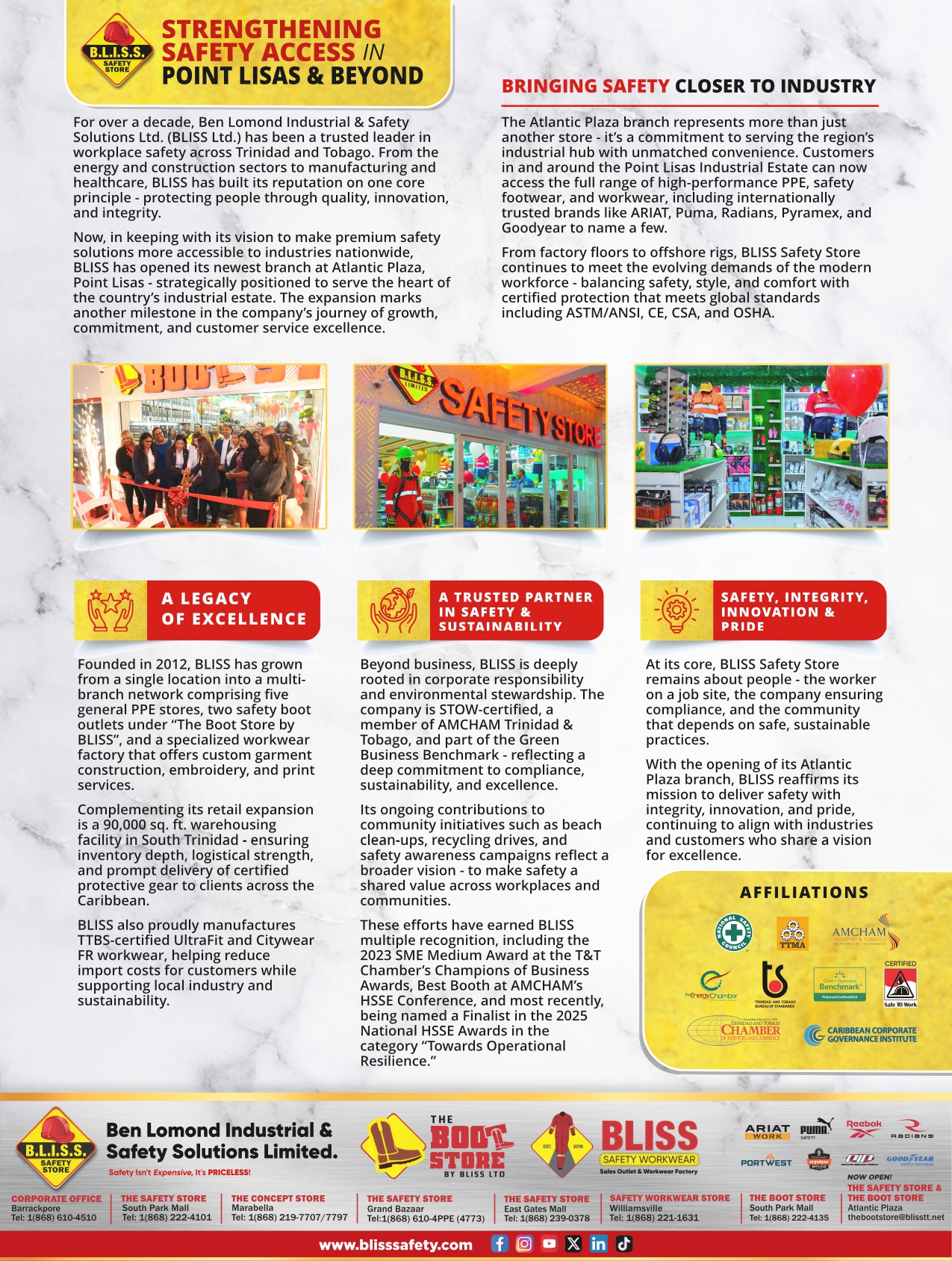Creating Value and Building for Accessibility:
Leveraging Open-Sourced AI for Impact
Engage. Execute. Evolve.
By AMCHAM T&T Staff Writer

Maxine Williams’ message in her keynote address at “THIS” was clear: artificial intelligence is not just reshaping technology, it is redefining inclusion, accessibility, and opportunity for billions of people worldwide.
For the 1.3 billion people living with disabilities worldwide, accessibility is not a side issue—it is a foundation for independence, dignity, and participation in society. Williams has dedicated her career to ensuring technology works for everyone, regardless of ability. She partners with engineers, product designers, policymakers, and, importantly, the disability community to ensure Meta’s platforms are usable and valuable to all.
Williams highlighted how AI is already enabling breakthroughs at the intersection of accessibility and everyday life. Take, for instance, smart spectacles powered by AI. With a simple voice command, they can describe surroundings to someone who is blind, read currency denominations, navigate spaces, identify what’s on a menu. They allow a visually impaired person to gain independence that was once unimaginable.
 Williams shared stories of individuals whose lives have been transformed by AI. Colin Hughes, a former BBC producer with muscular dystrophy, now uses AI-driven voice recognition to continue working productively. Kelly Clark, who suffered a traumatic brain injury, uses AI glasses to help her son solve math problems step by step—something she had lost the ability to do.
Williams shared stories of individuals whose lives have been transformed by AI. Colin Hughes, a former BBC producer with muscular dystrophy, now uses AI-driven voice recognition to continue working productively. Kelly Clark, who suffered a traumatic brain injury, uses AI glasses to help her son solve math problems step by step—something she had lost the ability to do.“These are not just tools,” Williams emphasised. “They are lifelines, restoring independence, connection, and productivity.”
Open Source AI
Yet, innovation alone is not enough. Affordability and accessibility remain barriers, especially in developing regions. This is where open-source AI becomes a game changer.
Meta’s decision to open-source Llama, its large language model, was driven by the belief that advanced technology should be democratised. “When you make AI free and open,” Williams said, “you empower businesses, nonprofits, and social enterprises—regardless of size or budget—to innovate and build solutions for their unique communities.”
From India’s Ministry of Skill Development using Llama to enhance student learning, to Argentina’s chatbot built on WhatsApp to improve public services, and to Fundate, an AI-powered study buddy serving over three million students in Sub-Saharan Africa, Williams illustrated how open-source AI is bridging opportunity gaps across the globe.
Closer to home, she envisioned how even a small family-run restaurant in Trinidad could train an AI chatbot—at no extra cost—to understand its menu, take orders, and personalise customer experiences.

While the possibilities are vast, Williams did not shy away from the ethical and structural challenges. Concerns around bias, representation in training datasets, environmental impact, and intellectual property are valid. “The solution is not to step away from AI but to build with intent,” she said.
Meta has launched initiatives like Casual Conversations, a dataset designed to ensure AI models work fairly across diverse ages, genders, accents, skin tones, and abilities. Similarly, Meta’s Massively Multilingual Speech (MMS) model now supports speech recognition and text-to-speech in over 1,100 languages, including many that were previously excluded from AI development.
“By prioritising inclusivity from the outset, AI can help preserve culture, reduce inequality, and bring the world closer together,” Williams explained.
Williams urged businesses, nonprofits, and social enterprises to view AI not as a zero-sum threat but as an opportunity to engage communities, execute bold ideas, and evolve toward greater accessibility and equity.
“These are still the early days,” she reminded. “But if we keep listening, keep building, and keep sharing, we can ensure that AI enhances lives and delivers value to everyone. That’s how we create an ecosystem where no one is left behind.”
Her keynote resonated deeply with the THIS 2025 audience, reminding all that the true measure of innovation lies not just in its sophistication, but in its ability to make the world more inclusive and equitable.